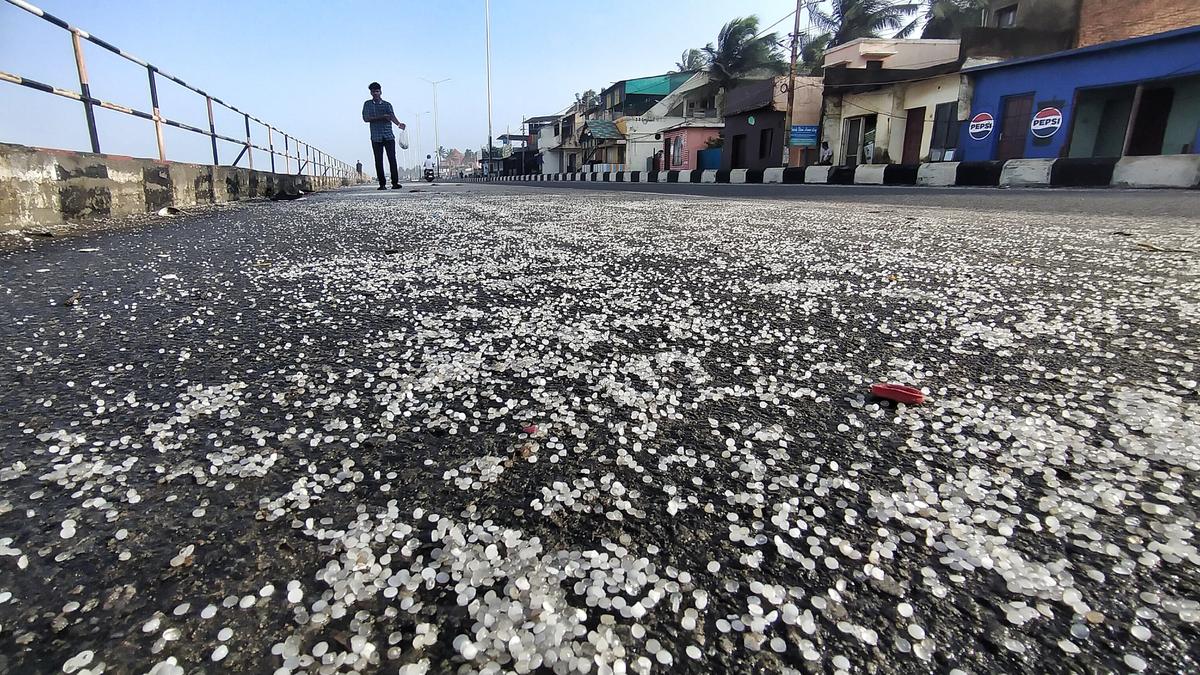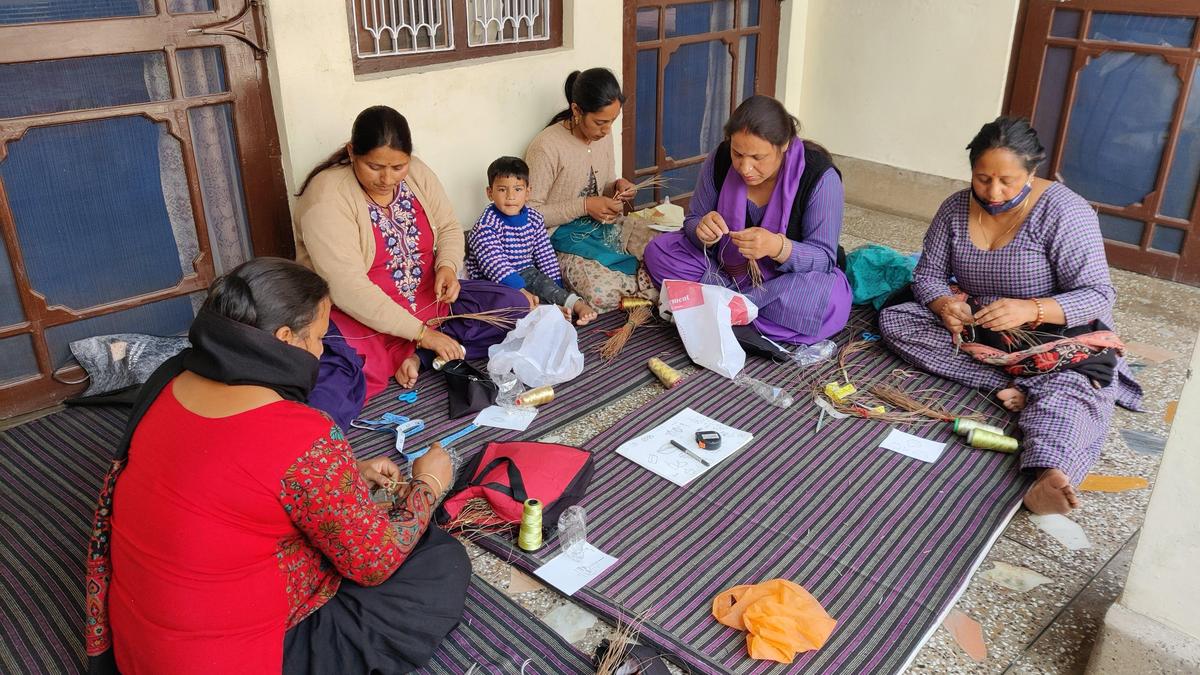
Tiny plastic pellets (nurdles) that washed on to Airport Road at Shanghumughom in Thiruvananthapuram on Wednesday (May 28, 2025).
| Photo Credit: Nirmal Harindran
Tiny plastic pellets (nurdles) found on beaches in Thiruvananthapuram in Kerala following the sinking of the container vessel MSC ELSA3 could have serious implications for the marine and coastal ecosystems and humans, warn experts.
While not inherently toxic, the pellets remain a dangerous pollutant. Their short- and long-term impacts include habitat contamination and their breaking up into micro and nano plastics and entering the food chain, according to A. Biju Kumar, Senior Professor, Marine Monitoring Lab, Department of Aquatic Biology and Fisheries, University of Kerala.

Tiny plastic pellets (nurdles) that washed on to Airport Road at Shanghumughom in Thiruvananthapuram on Wednesday (May 28, 2025).
| Photo Credit:
Nirmal Harindran
The ‘nurdle spill’ on Kerala’s coast is a wake-up call for India’s coastal management, shipping safety, and marine conservation, Dr. Biju Kumar said on Wednesday (May 28, 2025) after conducting field verifications at the Varkala and Kochu Veli beaches in Thiruvananthapuram.
“While the crew of the MSC ELSA3 were safely rescued, the ocean remains at risk,” he said, describing this as the first major incident of plastic nurdle landings in India caused by a shipwreck.
Global plastic chain
Classified as primary microplastics, these pellets and are between from 1 mm to 5 mm in diameter. They constitute a major component in the global plastic chain.
According to Dr. Biju Kumar, the pellets found in Kochu Veli are mostly low-density polyethylene (LDPE) and high-density polyethylene (HDPE). They are the most commonly used material for manufacturing products such as plastic bags and films, flexible tubing, coatings for paper cartons and cables, detergent bottles, hard plastic containers, pipes and crates. They are also used in packaging material, household goods, electronics and automotive parts and medical equipment. LDPE is quite difficult to recycle, he said. Every year, millions of tonnes of these tiny pellets are transported across the globe.
The Liberian-flagged MSC ELSA3 had capsized and sunk in the Arabian Sea off Kochi over the last weekend (May 24 and May 25). Its cargo consisted of 643 containers, including 13 laden with hazardous cargo. Several of the containers washed ashore in the coastal districts of Kerala in the days that followed, triggering concern.
For Thiruvananthapuram, the immediate response should include manual beach clean-ups and using specialised equipment such as floating booms, nets and sifting tools for containing the spread of the nurdles and collection, according to Dr. Biju Kumar.
Other measures include advising local communities not to handle such plastic pellets. Additionally, the shipping company should be held accountable for the spill and made to finance the clean-up, he said.
Following the shipwreck off Kochi, the Kerala government had placed the nine coastal districts of Kerala on alert. It had also announced plans to constitute two separate rapid response teams under the Factories and Boilers department and the State Pollution Control Board in the nine districts for handling oil spills and containers that wash ashore.
Published – May 28, 2025 09:54 am IST



